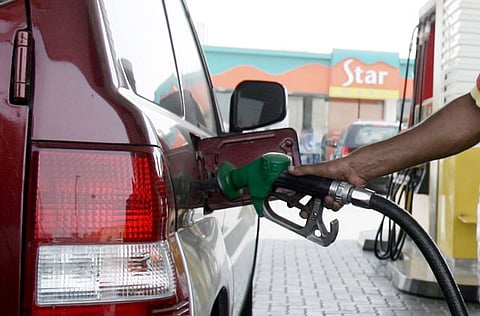Petrol price rise burden for some
Taxi franchisees to discuss matter though no immediate fare rise seen

Dubai: Omar Abu Holy drives his car around on his job as a sales engineer in Dubai. He spends about Dh1,200 monthly on gas alone, he told Gulf News.
An 11 per cent increase in petrol prices effective from Wednesday might not look like a lot of money, says Abu Holy. "But on the long run it's going to be a burden. It's going to add up," he said.
From Wednesday, petrol prices in the UAE are set to increase by Dh0.15 per litre to Dh1.52 per litre from Dh1.37.
For some others, the price change doesn't have a significant impact on personal expenses. Amer Barbir, a Dubai resident, travels about 100km everyday to go to work and spends an average of Dh600 on gasoline per month.
"It's going to be Dh65 more than what I used to pay, so it's still cheap," Barbir said. "If you compare it to Lebanon or Canada, where I used to live, it's still nothing. I never thought of it as a big load of money coming out of my pocket."
In an article on WAM it was reported that the decision was made to "reduce the accumulated and increasing losses underwent by companies, resulting from continuous high cost of the product".
Kate Dourian, Middle East Editor at Platts, an information provider on energy and metals, told Gulf News it is understandable that the prices will increase.
She said the move could have been made in an effort to curb high consumption and to reflect market prices.
The retail prices here are way too low compared to international prices, so the consumption level is much higher compared to other parts of the world, she said. "[People] are consuming more of the oil that [is produced] just because it's cheap."
Referring to oil and petrol stations in Dubai and the Northern Emirates, Dourian said the fact that these stations buy at the international rate and then sell at a lower one makes the business "unsustainable".
"They're losing millions because they buy at the international prices," she said. "Considering the historical evolution of prices it doesn't surprise me," said Sa'adallah Al Fathi, an energy expert.
Al Fathi said that while the government is trying to align prices with the international market prices, he doubts it will have much effect on consumption or people's behaviour.
"Dh1.52 is less than half a dollar per litre, which is much lower than prices internationally," he said. "We have to look at the absolute level of increase. It's 15 fils per litre. I don't think it will likely affect people's habits."
However, a rise in petrol prices raises questions on the kind of services that would be affected such as taxi rides and car rentals.
According to an RTA spokesperson, the taxi fares will not be affected by the upcoming increase in fuel prices. However, the RTA will be meeting with the taxi franchisee companies to discuss any potential change in the fares, the spokesperson said.
Nigel Johnson, General Manager of Hertz UAE, a car rental company, told Gulf News that the price increase will have some impact on the running costs of their business. "At this stage we will ensure that these costs are absorbed by Hertz and that none of these costs are passed through to our customers. We will of course continue to monitor the impact of any future rises," he said.
— With inputs from Ashfaq Ahmed,Chief Reporter



